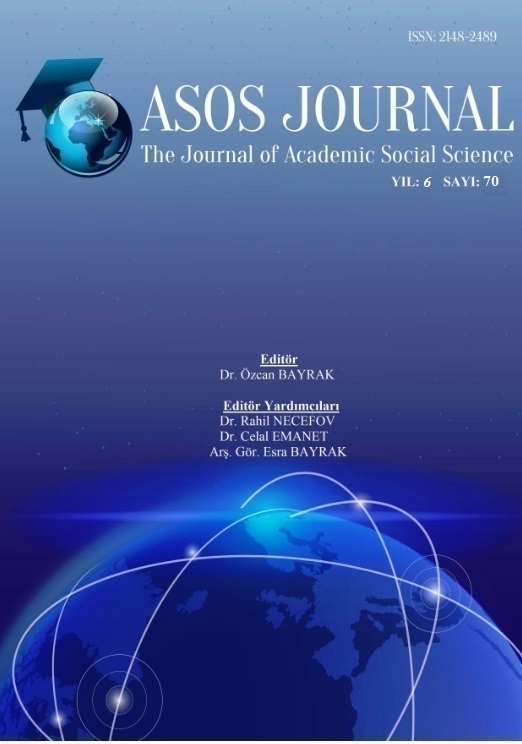Author :
Abstract
Yazınsal çeviriyi diğer çeviri türlerinden ayıran ve güçlük derecesini artıran sadece içeriğin değil aynı zamanda eserde bulunan söz sanatlarının, eserdeki vurgunun, dilbilgisel özelliklerin, yazarın üslubunun ve okur üzerinde bıraktığı etkinin tam ve eksiksiz olarak aktarılma gerekliliğidir. Bunlardan herhangisinin veya birkaçının sekteye uğraması çeviri kayıpları sorununu ortaya çıkarır. Çeviride kayıplar sorunu, dillerin özgün yapısından, çevirmenden ve dilin konuşulduğu toplumdaki kültürden kaynaklanır. Bu çalışmada Boris Pasternak’ın Nobel Ödüllü romanı olan “Doktor Jivago”nun 2014’te ilk kez aslından Türkçeye yapılan çevirisi kaynak eserle karşılaştırılarak çeviri kayıpları açısından incelenmiştir. Bulgular, anlamsal ve kurgusal kayıplar, biçemsel kayıplar, biçimsel kayıplar ve atlamalar olarak dört ana başlık altında sınıflandırarak yorumlanmıştır. Makalenin sınırlı hacminden dolayı her gurupta erek metinden elde edilen bulgulardan ancak birkaçı verilmiştir. Verilen örnekler, erek metinde sıkça karşılaşılan ve tekrar eden kayıpları temsil eden kesitlerden seçilmiştir. Bu araştırma, alanda çalışan çevirmenlere, çeviribilimde eğitim alan öğrencilere ve çevirmen adaylarına, yazınsal çeviride hangi hususlara dikkat edilmesi gerektiği konusunda belli ölçüde ışık tutacaktır. Bu tarz çalışmalar, Rusça-Türkçe arasında yapılacak çevirilerin daha kaliteli olması adına önem taşımaktadır. Yapılmış olanların da sonraki baskılarda geliştirilerek okura ulaştırılması ve olabildiğince eşdeğer bir ürünün ortaya konmasına yardımcı olacaktır.
Keywords
Abstract
What makes literary translation different from the other types of translation and increases its level of difficulty is not only related to the content but also the necessity to transfer the figures of speech, the emphasis, grammatical features, author’s discourse, and the impact on the reader without any loss. The lack of any one or some of the above-mentioned elements would lead to (a set of) loss(es) in translation. The losses in translation originate from linguistic peculiarities, the translator, and/or the culture in which the language is spoken. This article studies the translation of Boris Pasternak’s Nobel-winning “Doctor Zhivago” to Turkish from the original performed in 2014 in terms of losses in translation. The findings have been categorized into four main titles, namely semantic and fictional losses, stylistic losses, syntactic losses, and omissions. Due to the limited size of the article, only a few findings obtained from each group in the target language could be provided. The examples offered have been chosen from sections that represent frequent and repeated losses. This study will shed light on what to pay attention in literary translation for the translators working in the field, students of translation studies, and prospective translators. Works of this kind carry importance to do more quality Russian-Turkish translations. They will also help the subsequent editions of the ones already published reach the reader improved and present an equivalent product as much as possible.





